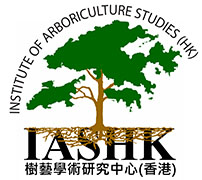
He specializes in teaching tree management and urban forestry, including the skills of tree and shrub planting, identification, management of pests and diseases of woody plants, and tree risk management. He also teaches woodland management and ecology. He has been teaching on arboricultural topics at Myerscough College, Lancashire, for over eleven years.
His PhD study was in the mechanical properties of junctions in trees, concentrating on the hazel (Corylus avellana) as a test specimen. The study’s findings include a new anatomical model of how branches are attached to trees, a new mode of failure for how tree junctions fail, and that hazel forks set at different angles have different strengths, which relate to their daily gravitational loading. Final work on this study includes assessing how forks remodel themselves after a defect is induced in them, assessing the movement behaviour of forks using accelerometers and creating novel Y-shaped components inspired by the wood grain patterns found at tree forks.
Further to that work, he has found the primary cause of bark-included junctions in trees, which is the result of ‘natural braces’ – touching and rubbing branches that prevent a junction from experiencing normal loading. This finding informs important changes to tree surgery and tree assessment practices.
